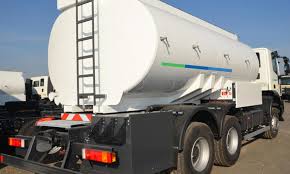
Over 9,000 oil marketers in Nigeria are at risk of losing their operating licenses due to the Nigerian National Petroleum Company Limited’s (NNPCL) deadline for license renewal.
The NNPCL given marketers a deadline of April 15, 2024 to renew their license, the penalty attracts closure of access to customer express portals for the purchase of petroleum products from NNPC Retail Limited.
Meanwhile, in response to this the Independent Petroleum Marketers Association of Nigeria (IPMAN) has appealed to the NNPCL and the Nigerian Midstream and Downstream Regulatory Authority (NMDPRA) to extend the deadline to July and release already processed licenses to marketers.
IPMAN made the request due to the slow pace of license renewal, which has led to panic buying and exacerbated the current fuel scarcity.
The association urged the authorities to release the processed licenses and extend the deadline to avoid delisting marketers from their customer express portals for purchasing petroleum products from NNPC Retail Limited.
The NMDPRA has processed over 9,000 licenses out of 15,000, and IPMAN is seeking an extension to enable marketers to reconcile their licenses and ease the tension of panic buying in the general public.
Earlier, the association also threatened to shut down its 30,000 stations across the country if the Federal Government fails to pay the N200 billion owed to marketers.
Meanwhile, fuel scarcity persists, with commercial drivers keeping vigil at fuel stations and transport fares increasing due to the unavailability of the product.
In many areas, transport fares have doubled their prices with commuters left with no choice than to board. In fact, prices of goods and services have started to increase as sellers have been forced to pay double the price for transportation of their products.
This scarcity has also greatly affected students and pupils returning back to school. With the scarcity of fuel and hike in transport fare, parents have been forced to keep their children home.
While all these are ongoing, black marketers are taking advantage of the situation, selling fuel at exorbitant prices.
To curb the situation, the government has promised a 15-day emergency fuel supply to address the scarcity, yet the product remains unavailable to residents.
